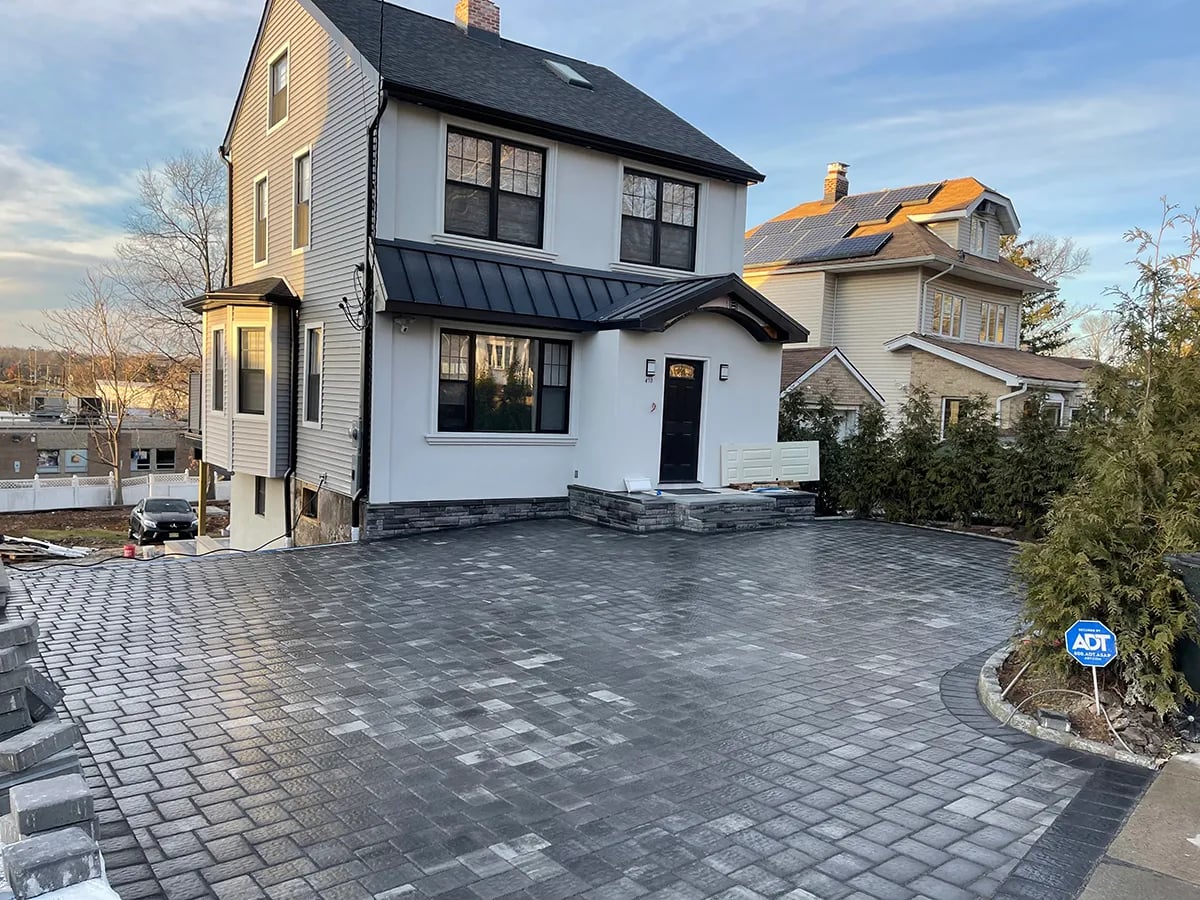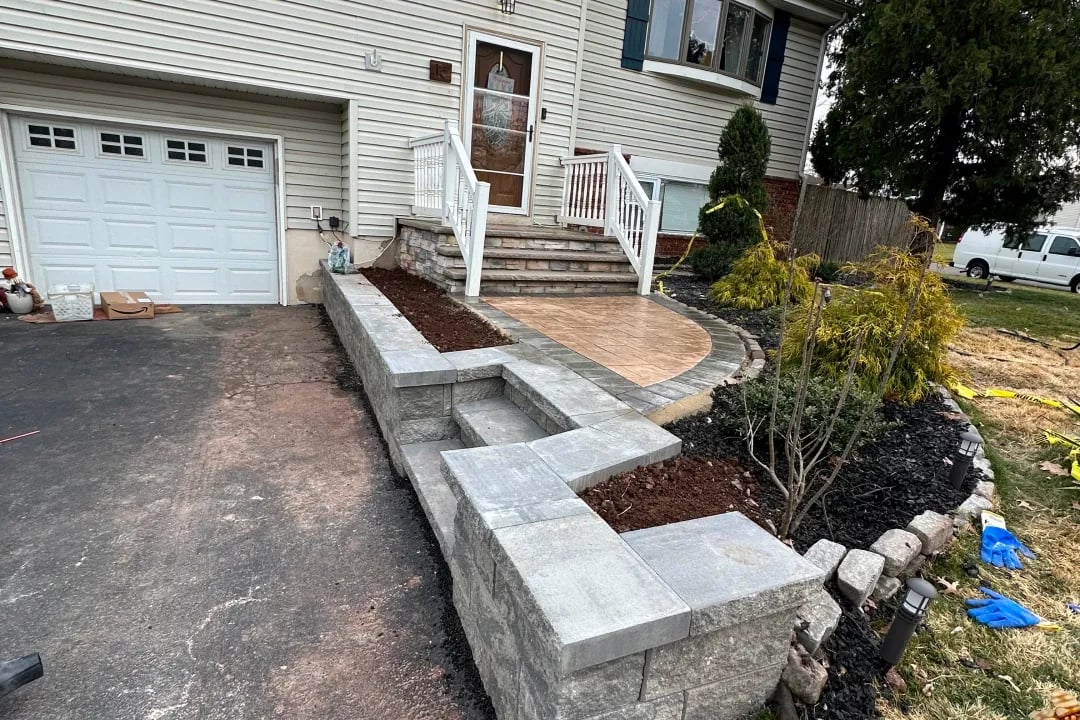Masonry Contractors Guide to Educating Homeowners on Brick and Stone Care
By Contractors Booklist Editorial Team • Oct 30, 2025 • 8 min
Learn how masonry contractors can boost SEO by sharing expert brick and stone maintenance tips with homeowners through engaging blog content.
The State of Masonry Maintenance Knowledge
Many homeowners take pride in their brick and stone exteriors, but few truly understand how to care for these materials. A recent survey found that 68% of homeowners with masonry features admit to having little knowledge about proper maintenance. This gap in understanding often leads to costly mistakes and premature deterioration.
Common misconceptions about brick and stone care include:
- Believing that masonry is maintenance-free
- Using harsh chemicals for cleaning
- Ignoring small cracks or damage
- Power washing without proper technique
These mistakes can significantly impact a home's value. Well-maintained masonry can increase property value by up to 6%, while neglected exteriors can lead to a 10-15% decrease. Educating homeowners is crucial for preserving these valuable assets.
Masonry contractors play a vital role in bridging this knowledge gap. By sharing expertise on topics like proper cleaning methods, identifying early signs of damage, seasonal maintenance tasks, and when to seek professional help, contractors can help homeowners protect their investments and maintain beautiful, long-lasting masonry.
Creating Engaging Brick Maintenance Content
As masonry contractors, we know that educating homeowners about proper brick care is crucial. But how do we make this information stick? The key is to create content that's both informative and engaging.
There are three essential topics every brick maintenance guide should cover: cleaning techniques, repointing mortar joints, and weatherproofing methods. Use before-and-after examples to really drive your points home. Visual aids can make a world of difference in helping homeowners understand proper techniques.
To keep your content relevant year-round, incorporate seasonal maintenance tips:
- Spring: Checking for winter damage
- Summer: Cleaning algae and moss growth
- Fall: Preparing brickwork for cold weather
- Winter: Avoiding de-icing salts near brick surfaces
By covering these bases, you'll provide valuable information that keeps homeowners coming back to your content throughout the year.
Crafting Stone Care Guides for Homeowners
When it comes to stone care, one size doesn't fit all. Different types of stone require different maintenance approaches:
- Granite: Durable but needs regular sealing
- Marble: Sensitive to acidic substances
- Limestone: Requires gentle cleaning methods
It's crucial to address the specific care needs for both indoor and outdoor stonework. Indoor stone might need protection from spills and stains, while outdoor stone faces challenges from weather and environmental factors.
One topic that often confuses homeowners is sealing. Here's a quick guide on sealing frequency:
- Granite: Every 1-3 years
- Marble: Every 6-12 months
- Limestone: Every 1-2 years
Remember, these are general guidelines. The actual frequency can vary based on usage and exposure.
Optimizing Blog Content for SEO Success
Creating great content is only half the battle. To ensure your masonry maintenance articles reach your target audience, you need to optimize for search engines. Here are some key strategies:
Keyword Research
Start by identifying relevant keywords. For masonry contractors, terms like "brick repair," "stone maintenance," or "masonry restoration" could be valuable. Use these naturally throughout your content.
Content Structure
Break up your text with headers, lists, and other elements to improve readability. Search engines love well-structured content. Use H2 tags for main sections, H3 tags for subsections, and include bullet points and numbered lists.
Linking Strategy
Both internal and external links can boost your SEO. Link to other relevant articles on your site, and don't be afraid to link out to authoritative sources. By implementing these SEO techniques, you'll increase the chances of your content being found by homeowners searching for masonry maintenance information.
Measuring the Impact of Educational Content
Masonry contractors who invest time in educating homeowners about brick and stone care often see a significant return on their efforts. Here are some key ways to measure the impact:
- Website traffic to your educational blog posts
- Time spent on page for these articles
- Social media shares and engagement
- Number of inquiries mentioning your educational content
- Conversion rates for leads who've interacted with your guides
These numbers can give you a good sense of how well your content is resonating with potential clients. But don't stop there. Qualitative feedback is just as valuable as quantitative data. Consider reaching out to recent clients with a quick survey about how helpful they found your educational materials.
Another approach is to track the types of questions you're getting from potential clients. Are they more informed about proper maintenance techniques? Do they ask about specific issues you've covered in your guides? If you're noticing a shift in the quality of conversations you're having with prospects, that's a good sign your educational efforts are paying off.
Remember, educating homeowners isn't just about immediate lead generation. It's about building trust and positioning yourself as an expert in your field. By consistently measuring and refining your educational content strategy, you can create a powerful tool for attracting and retaining clients.
At Contractors Booklist, we connect homeowners with trusted masonry contractors who can help with brick and stone care, repairs, and maintenance. Our network of vetted professionals can provide expert guidance and services to keep your masonry in top condition.
Wrap-up
Educating homeowners about brick and stone care isn't just good customer service—it's smart business. By sharing your expertise through blog posts, you build trust and position yourself as the go-to masonry expert in your area.
Remember, effective educational content should be clear, practical, and tailored to your audience's needs. Focus on common issues homeowners face, offer easy-to-follow maintenance tips, and explain when it's time to call in the pros.
Consistent blogging efforts can pay off big time for masonry contractors. You'll not only help current clients take better care of their investments but also attract new customers searching online for masonry advice. Plus, optimizing your blog posts can boost your website's visibility in search results.
Ready to take your masonry business to the next level? Start sharing your knowledge online today. Your future clients are out there, looking for the exact expertise you have to offer.
For homeowners, if you need professional masonry services for brick or stone repair, maintenance, or restoration, Contractors Booklist can connect you with qualified masonry contractors in your area. Start your project with Contractors Booklist today.
Common Questions About Masonry Maintenance Blogging
How often should I post new content?
Consistency is key for effective blogging. Aim to post at least once a week to keep your audience engaged and improve your search engine rankings. If time is tight, even bi-weekly posts can make a difference.
What if I'm not a great writer?
You don't need to be Shakespeare to create valuable content. Focus on sharing your expertise in simple terms. Use bullet points, short paragraphs, and images to break up text.
Can blogging really improve my business?
Absolutely. Regular blogging can boost your SEO, positioning you as an expert in masonry. It helps attract potential clients searching for information online. Many contractors have seen increased leads and customer trust through educational content.
How do I choose topics to write about?
Listen to your customers. What questions do they ask most often? Those are great starting points. Also, consider seasonal topics, common masonry problems, and maintenance tips.
How long should my blog posts be?
Aim for posts between 500-1000 words. This length allows you to cover topics in depth without overwhelming readers. Longer posts (1500+ words) can be great for complex subjects, but make sure to break them up with subheadings and visuals. The key is providing value, not hitting a specific word count.

